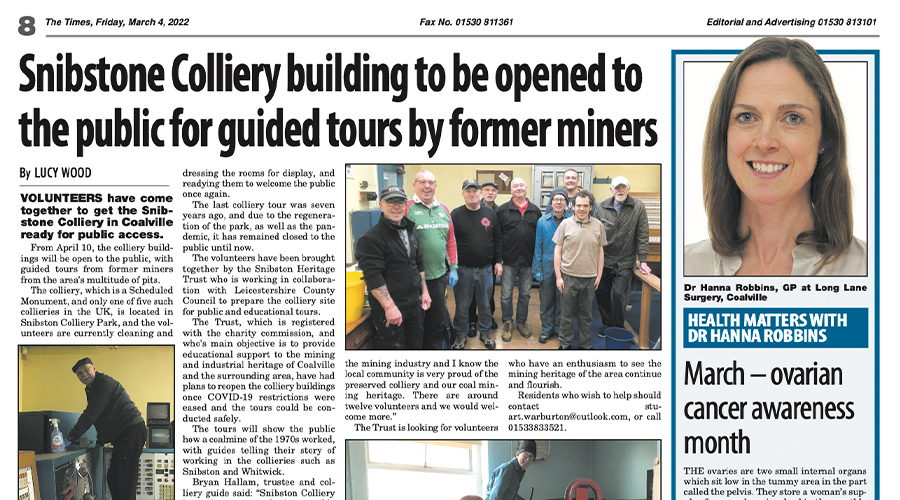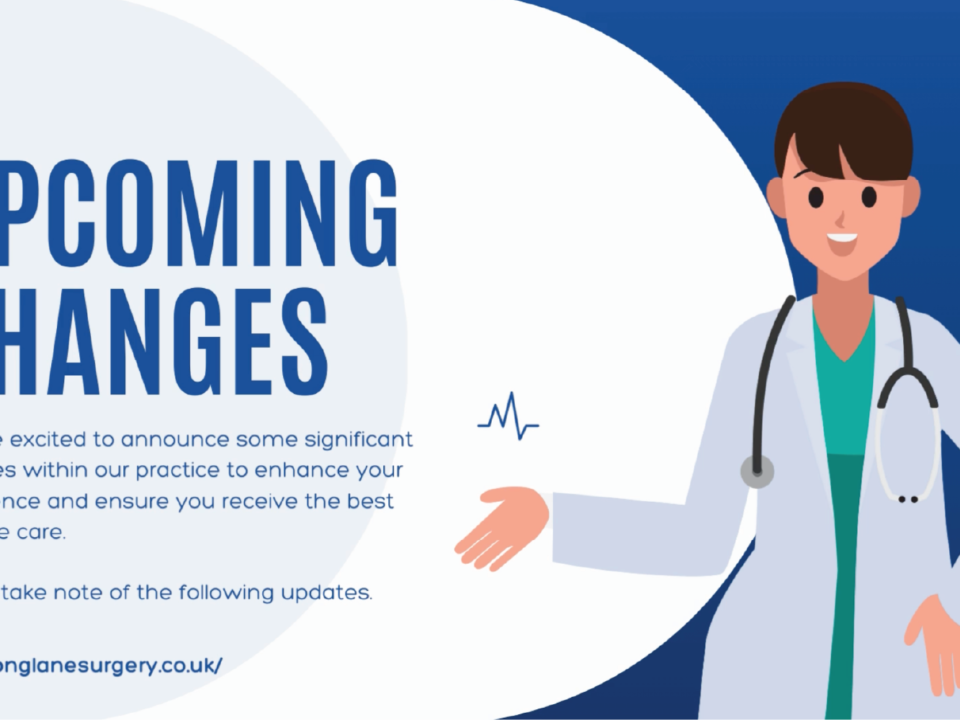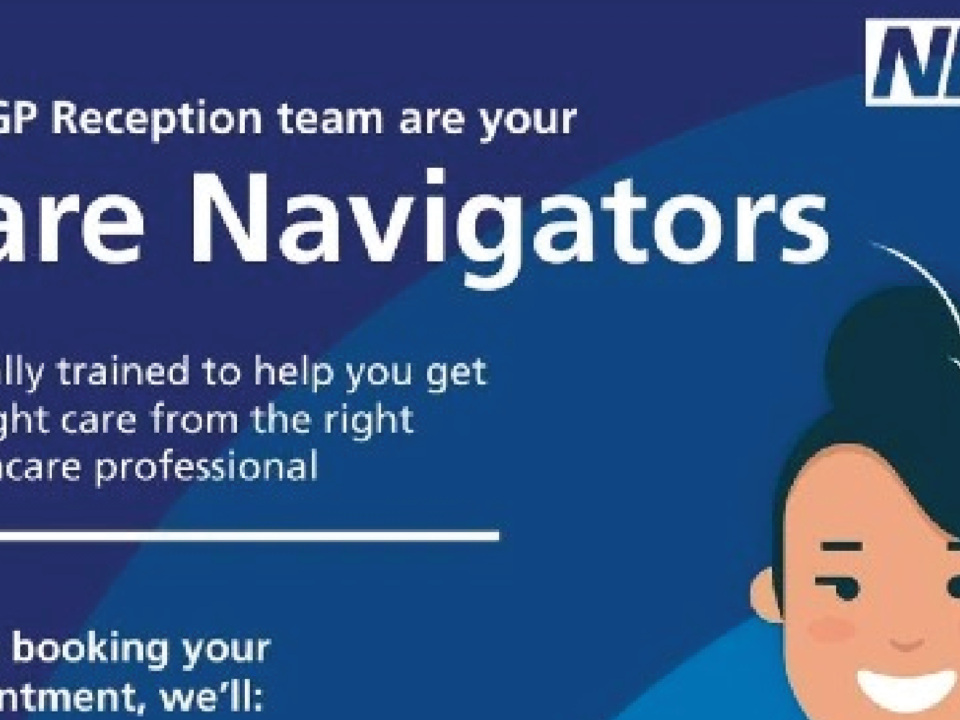
HEALTH MATTERS: Ovarian cancer awareness month
March 4, 2022
HEALTH MATTERS: Ovarian Cancer Treatment
March 18, 2022Featured In: The Coalville Times, Friday, 11th March, 2022
HEALTH MATTERS WITH DR HANNA ROBBINS
Ovarian cancer 2: what next?
LAST week we talked about ovarian cancer. Just to recap:
- It’s the 6th most common cancer in women
- Survival rates are getting better all the time
- Spotting it early leads to better outcomes
What can I do to reduce my risk?
- Have a healthy lifestyle
- Aim to be a healthy weight
- Quit smoking
- See your GP surgery for a yearly review if you take HRT
How do I spot the signs?
See your GP surgery if you notice these more than three times a week over the course of a month
- Feeling full quickly
- Loss of appetite
- Pain in your belly that doesn’t go away
- Bloating or noticing your belly has got larger
- Needing to wee more often
- Unexplained tiredness
- Unexplained weight loss
- Changes in your bowel habit, especially after the age of 50 These will not usually mean you have can- cer, but if you notice any of these that are not normal for you, it’s best to get them checked out. Try not to be embarrassed. What you tell your GP surgery is confidential. Doctors and other clinicians at the surgery will try to put you at ease, we are used to talking about these things.
How to make an appointment at your GP surgery:
- diabetes
- Telephone the surgery
- Book an appointment through the practice website
- Use the NHS app
- Book an online consultation through the website If it’s busy in the morning try a different time of day
What happens next
- The clinician will ask you some questions
- They may want to examine you
- They may arrange a blood test
- They may refer you to hospital for a scan or to see a specialist It’s helpful if you write down your concerns beforehand, and bring someone else if you’re feeling worried.
- The clinician will ask you some questions
- They may want to examine you
- They may arrange a blood test

Dr Hanna Robbins
Senior GP at Long Lane Surgery




